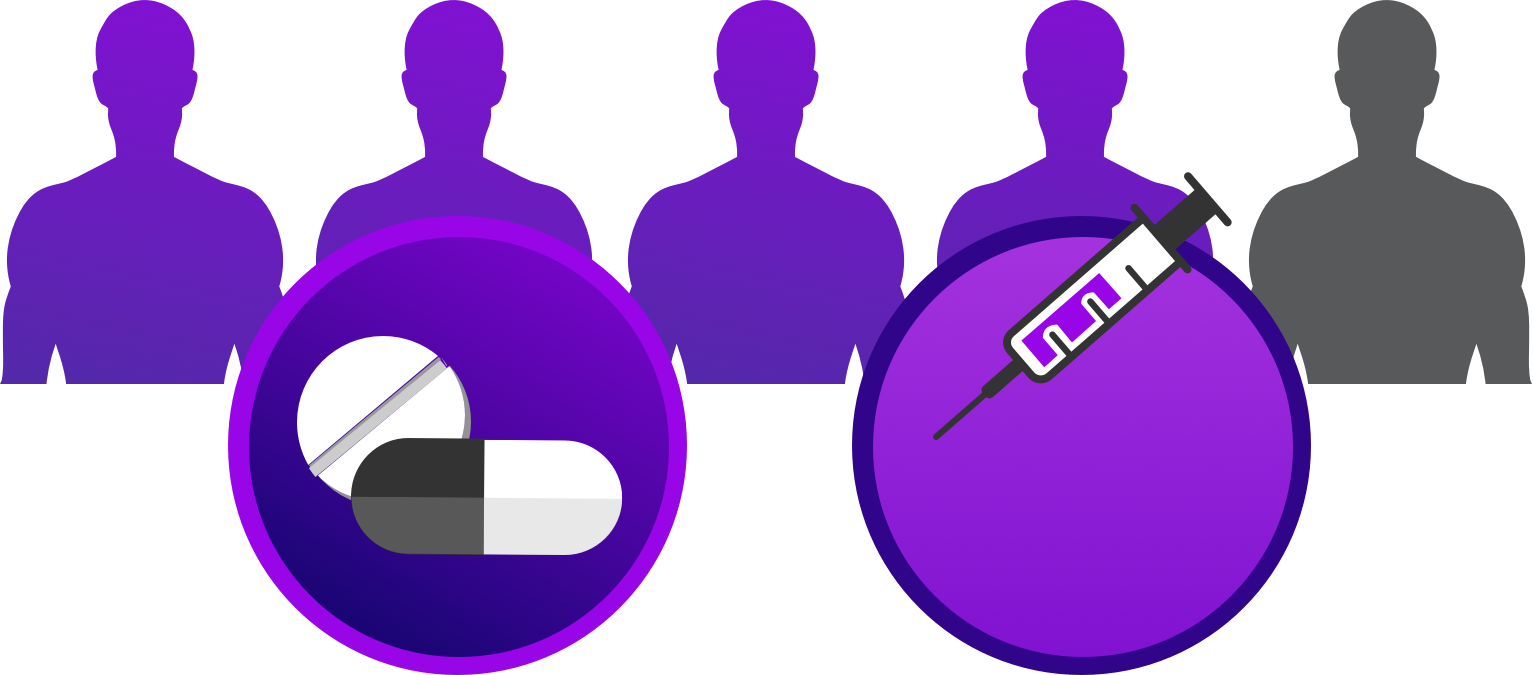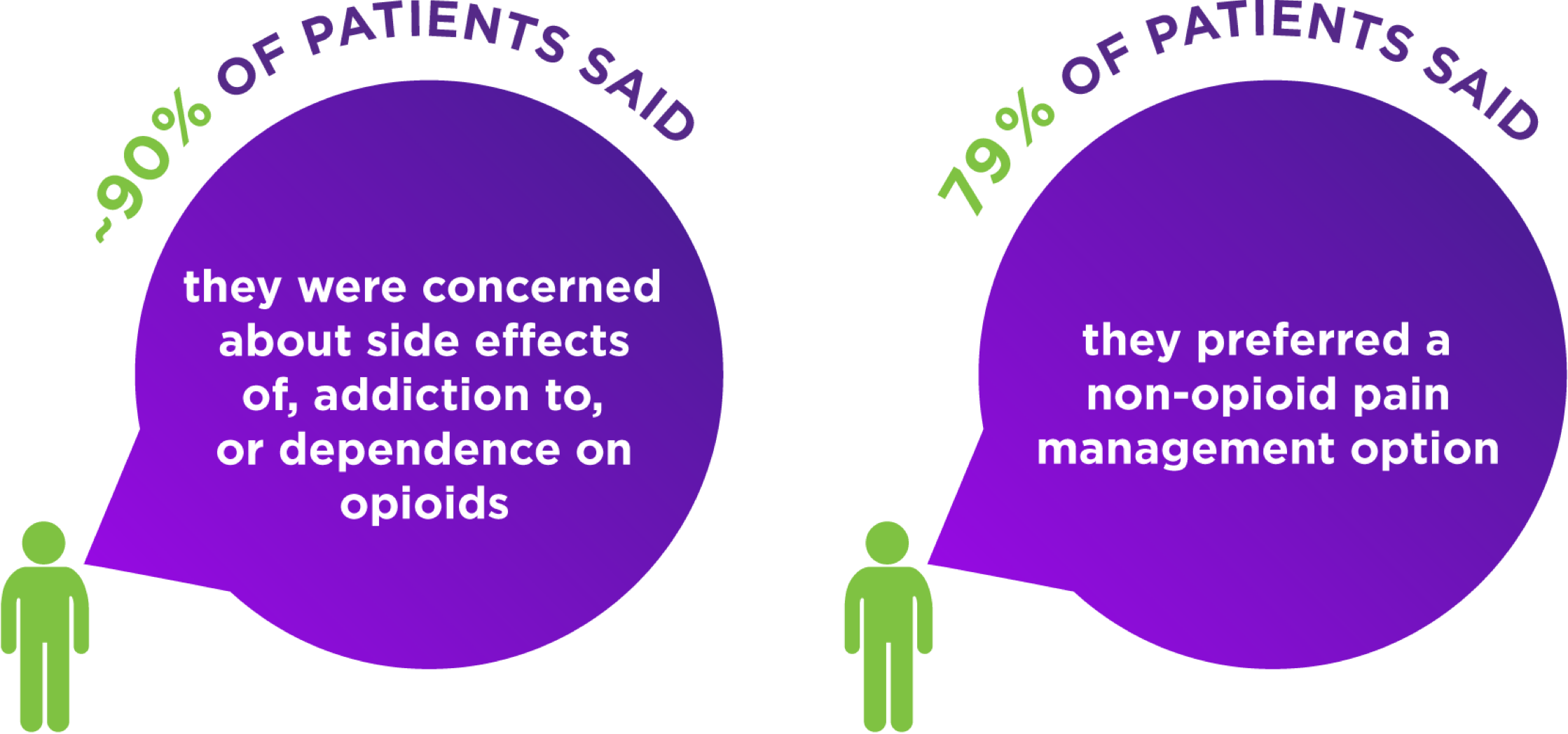The majority of surgical patients receive opioids and many will go on to become persistent long-term users1
While opioids have been a mainstay in postsurgical pain control, they are also at the center of an ongoing national crisis. For many patients undergoing surgery, it is their first exposure to opioids.
99%
of patients receive opioids to manage postsurgical pain2*
*In a retrospective study of hospital discharge data (N=37,301).
1 out of 15 surgical patients prescribed an opioid may go on to long-term use or abuse3,4†
†In a prospective longitudinal study (N=109).

Overall, nearly 9.5% of surgical patients who had not been taking opioids prior to the perioperative period became newly persistent users in 20175‡
Newly Persistent Opioid Patients
By Percentage
OVERALL
9.5%
7.2%
Hernia
7.5%
Hysterectomy
8.5%
Sleeve
Gastrectomy9.9%
Total Hip
10.2%
Rotator Cuff
16.7%
Total Knee
17.6%
Colectomy
‡Newly persistent is defined as a patient using an opioid 3 to 6 months beyond the postsurgical recovery period.
There are risks associated with opioid exposure
68%
of people using pain relievers (non-medically) obtained them from a friend or relative6§
§According to the 2013 National Survey on Drug Use and Health among past-year users aged ≥12 years (N≈37,000).

4 out of 5 new heroin users started out by misusing opioids7|
|From an analysis of the 2008–2010 National Surveys on Drug Use and Health to examine patterns of heroin use and risk behaviors among past-year non-medical users of opioid pain relievers.
An estimated
3 million Americans
will become persistent users of opioids each year following initial exposure after surgery in the hospital3
Most patients would prefer a non-opioid option to control their pain after surgery8||

||From a survey of 500 adults in the United States who had an orthopedic or soft tissue surgery and 200 US surgeons who perform these procedures.
See how you can reduce or eliminate opioids by incorporating EXPAREL into your enhanced recovery protocol¶
¶The clinical benefit of the decrease in opioid consumption was not demonstrated in the pivotal trials.
ASP, average sales price; CMS, Centers for Medicare and Medicaid Services.
